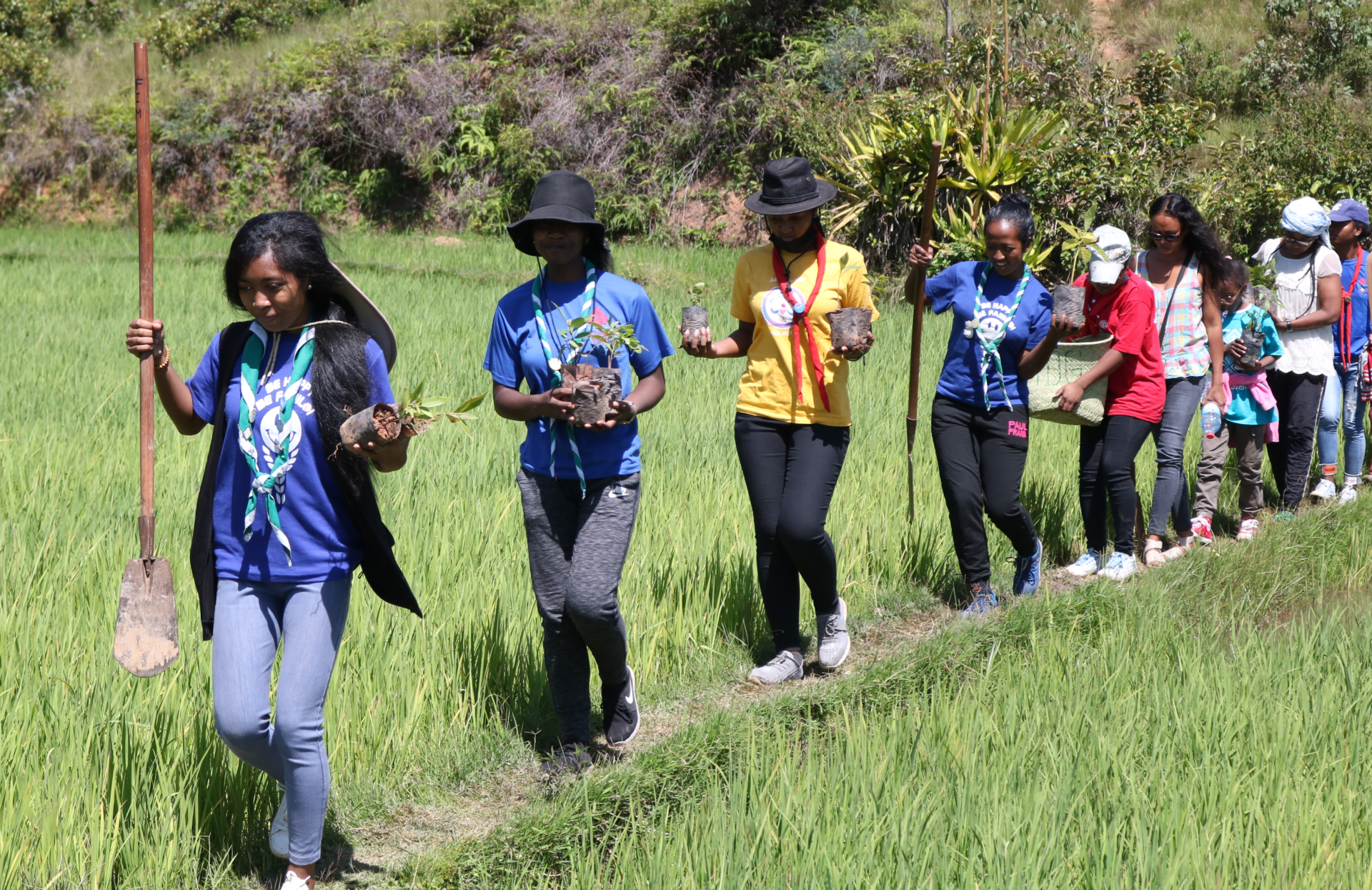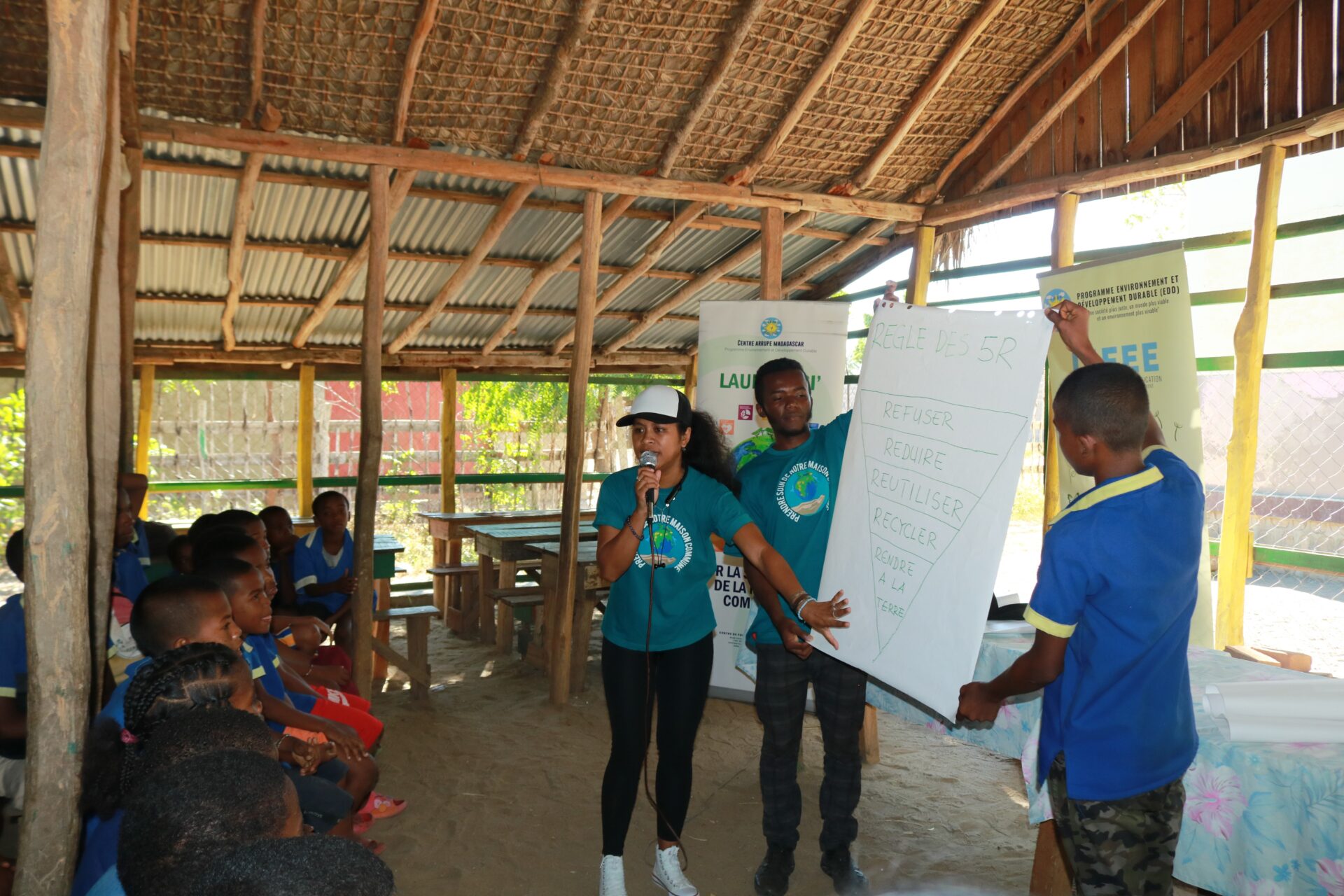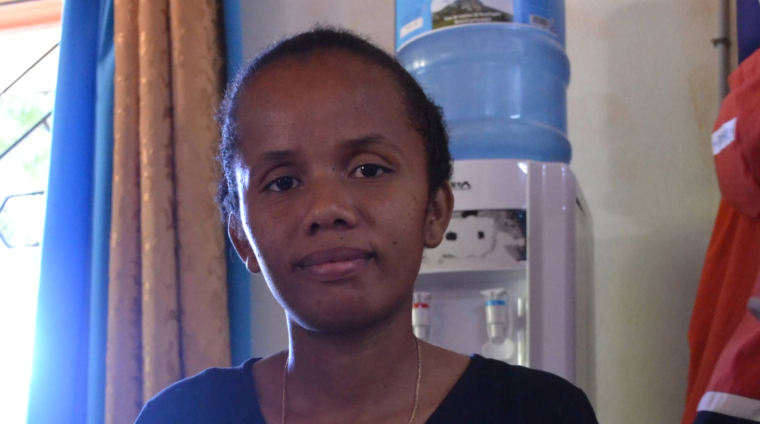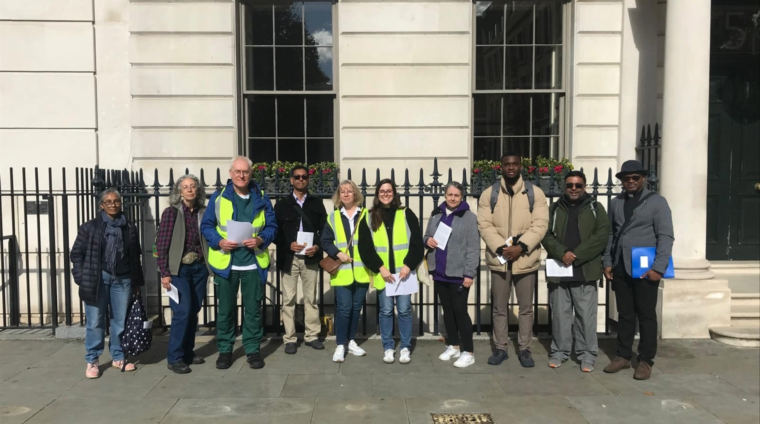Several of Jesuit Missions’ partners, operating in some of the world’s poorest places, are disproportionately affected by the impact of climate change. Henintsoa Nary Mihamina, from the Centre Arrupe in Madagascar, explains how she and her colleagues are tackling this.
At the Centre Arrupe Madagascar (CA MDG), we operate as a training and research hub, whose mission is to promote the search for sustainable solutions to problems in Malagasy society.
We have four programmes with a primary focus on Environment and Sustainable Development, Citizen Participation and Economic Efficiency, Health and Family, and Research and Documentation.
In light of ‘Great Big Green Week’, CA MDG aims to showcase its deep commitment to environmental sustainability.
Eco-awareness initiatives
The CA MDG hosts an annual ‘Green Weekend’ event, during which a reforestation campaign is carried out.
In 2024, the seventh edition of this event, the weekend focused on the environment: the initial day centred on awareness initiatives, workshops, conferences, and environmental awareness contests, while the following day was dedicated to reforestation efforts (with approximately 1000 to 3000 seedlings planted). To ensure the continued success of this reforestation campaign, regular monitoring of the plantations is conducted every three months.
Annually, we organise an ecological day, where everyone takes part in greening the area around the centre. Last year, we focused on our garden.
Staff were encouraged to collectively watch The Letter, a film that calls for action to preserve our common home and foster brotherhood with the most vulnerable. This served as an opportunity to heighten everyone’s awareness of environmental stewardship in the face of the challenges posed by climate change.
Furthermore, collaborators are regularly reminded to reduce the use of plastics and paper in all their activities, and everyone tries to apply this behaviour.

Small changes, big impact
Significant global consequences can be caused by everyone’s minor actions such as the use of single-use plastic bags, disposal of cigarette butts, chemical usage, excessive consumption of plastic-packaged products, and leaving chargers plugged in when not in use.
These seemingly trivial habits can have substantial impacts on the environment. Furthermore, in Madagascar, certain human activities are worsening this decline, including deforestation, intensive mining and logging, traditional slash-and-burn cultivation known as tavy, harvesting of firewood and charcoal, overfishing, and bushfires.
These activities collectively contribute to hastening environmental degradation. Madagascar is bearing the brunt of this environmental damage, as evidenced by the following examples:
- The risk of flooding is increasing.
- The drought is becoming particularly intense, especially in the Great South of Madagascar. According to UNICEF’s Drought Monitoring Bulletin in November 2023, only 11% of the territories have favorable conditions, 80% are under normal status, 5% are on alert, and 2% are in an extreme drought emergency situation.
- Water resources are becoming increasingly scarce, forcing women and girls to travel long distances to find water. Unfortunately, this water is often not drinkable, but they have no other choice.
- Food insecurity has become a pressing issue too, as drought significantly disrupts agricultural activities, making it challenging for families to ensure their own food supply. According to the USAID data, over 70% of households in Madagascar experience food shortages at some point during the year.
- The rate of deforestation is on the rise, and a significant portion of Madagascar’s population relies on forests for sustenance and livelihood. It means household incomes are unstable and inconsistent.

Considering all these realities, CA MDG offers training and awareness sessions on eco-responsible behaviours and capacity building for climate resilience. All our environmental awareness initiatives are geared towards educating people on incorporating eco-friendly practices into their daily routines.
Image: Unsplash/Yasmine Arfaoui





